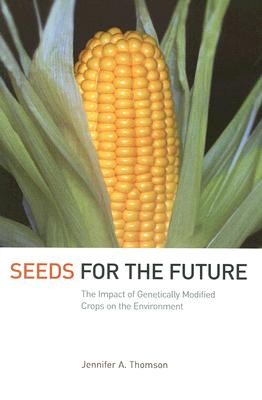
- We will send in 10–14 business days.
- Author: Jennifer Thompson
- Publisher: Comstock Publishing
- ISBN-10: 0801473683
- ISBN-13: 9780801473685
- Format: 15.8 x 23.1 x 1.2 cm, minkšti viršeliai
- Language: English
- SAVE -10% with code: EXTRA
Reviews
Description
Plants have long been genetically modified through crossbreeding and other basic agricultural techniques to make crops more resilient, nutritious, and profitable. In recent decades, however, advances in genetic engineering--including the ability to blend genetic material from animals with that of plants--have allowed farmers to grow crops that resist insect pests, weeds, viruses, and drought; provide increased iron or beta carotene; deliver vaccines and antibodies; reduce common allergens and pollutants; and augment marketable qualities such as delayed ripening. The complicated scientific, environmental, legal, cultural, and ethical issues surrounding these crops are being hotly debated all over the world. In Seeds for the Future, an internationally respected molecular geneticist and food researcher, Jennifer A. Thomson, describes how these crops are developed, distributed, and regulated.
EXTRA 10 % discount with code: EXTRA
The promotion ends in 21d.14:58:56
The discount code is valid when purchasing from 10 €. Discounts do not stack.
- Author: Jennifer Thompson
- Publisher: Comstock Publishing
- ISBN-10: 0801473683
- ISBN-13: 9780801473685
- Format: 15.8 x 23.1 x 1.2 cm, minkšti viršeliai
- Language: English English
Plants have long been genetically modified through crossbreeding and other basic agricultural techniques to make crops more resilient, nutritious, and profitable. In recent decades, however, advances in genetic engineering--including the ability to blend genetic material from animals with that of plants--have allowed farmers to grow crops that resist insect pests, weeds, viruses, and drought; provide increased iron or beta carotene; deliver vaccines and antibodies; reduce common allergens and pollutants; and augment marketable qualities such as delayed ripening. The complicated scientific, environmental, legal, cultural, and ethical issues surrounding these crops are being hotly debated all over the world. In Seeds for the Future, an internationally respected molecular geneticist and food researcher, Jennifer A. Thomson, describes how these crops are developed, distributed, and regulated.


Reviews